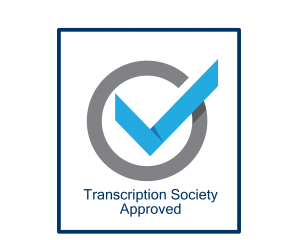This week we received a job application from a transcriber who was looking to become one of our associates. She started to go through the process and completed our rigorous assessment before being rejected due to her poor quality transcription.
On receipt of our (very nice and encouraging) rejection email, she sent us a very angry email back again advising us that she had been working for rev.com for some time and was an experienced transcriber. She enjoyed a high level of accuracy and did not know why we would reject her. The email was lacking any capital letters at all and her grammar was not great, but to top it off she finished the message by calling us ‘f*****g assholes’.
In fact here is a copy:
“this is so ridiculous. i’ve been using computers since the early 90’s, and typing for far longer, and i work for rev.com and i have high ratings, and my speed is 70wpm and accurate, and my formatting is good, so why would i be rejected. f****g assholes.”
Whilst we would dispute this assertion on the basis that she has never met us so is unable to justify her depiction of our collective character, it did raise the question as to the correct terminology. It also sparked a discussion about when the use of small but local transcription companies can be more beneficial than international operations.
Arsehole or Asshole?
The difference in usage between the two is quite simple – American English speakers say ‘asshole’ and British/Australian English speakers say ‘arsehole’.
As Professor Simon Williams of Dunstable University says (according to NewsThump.com) “those who choose to say the invasive American ‘asshole’ over the classic British ‘arsehole’ are massive t**ts of the highest order.” Whilst Simon Williams and Dunstable University do not exist, we agree with the sentiment. Asshole does not sound right for a native British speaker. It has been and always will be ‘arsehole’ if you are from the UK or Australia.
Transcribing Swear Words and Profanities
As Philip Gooden, a language expert, says: “What makes swear words offensive is that people are ready to be offended by them.”
Our transcribers are not offended by bad language and neither are we, even when Rev.com transcribers send us rude emails! We are very used to transcribing anything and everything – from traumatic abuse investigation interviews to social research focus groups containing just about every profanity known to man.
Of course we transcribe words as we hear them, but our transcribers would not use ‘asshole’ unless they specifically heard it. In the UK it is unlikely anyone would use ‘asshole’ unless they were being ironic or quoting an American speaker.
Bad Grammar
One of the requirements for our transcribers is to be able to use grammar correctly, regardless of which language they are transcribing in (we transcribe in just about every world language). Not using capital letters in a transcription is an instant rejection for us. Whilst we appreciate that the email was probably typed in anger and without thinking through the grammatical issues, it would be grounds for us to definitely not use the transcriber!
Local Transcribers for Local Variations
Being able to deal with localised language variations is one of the reasons our service is used by clients. For example a speaker in Glasgow will have certain language variations that will not be seen across the rest of the UK, and only a transcriber experienced in dealing with Glaswegian accents would actually know what the terminology was. If the same piece of transcription was sent to a US transcriber based in Orlando, they would probably not have a clue what the Glaswegian speaker was actually saying, and the transcription would be very inaccurate.
This might not be a problem if the service being used was extremely cheap and you were looking to go through afterwards and change certain parts yourself, but if you are working on a large research project with many hundreds of hours of recordings it may be an issue. You really need a company who are able to transcribe terminology correctly from the outset, and quite probably for the same price as a multinational.
Local specialist transcription companies can be much more accurate than international organisations using transcribers from around the world. Although they may have thousands of ready and willing operatives, if they do not have one based in your area who understands local language variations, you will get discrepancies in your transcriptions.
The email we have received from the rev.com transcriber just about sums up the difficulty with using an international service to transcribe regional dialect. I have to say I don’t think we have ever been called f*****g assholes before! Looking at it from a positive slant however it has given us the chance to write this blog article so something good has come out of it.









